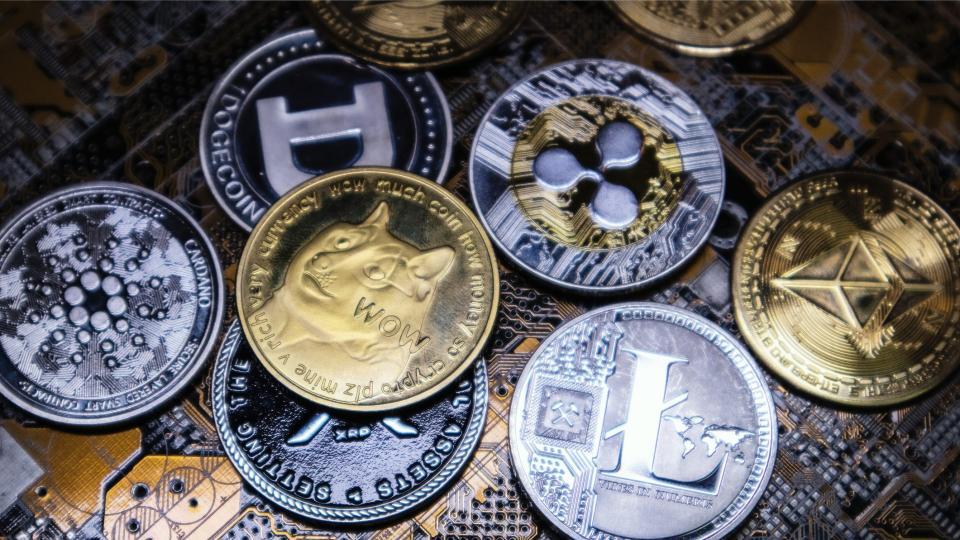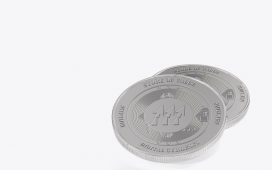
An initial coin offering (ICO) is a way for startups and projects to raise capital by selling digital tokens or cryptocurrencies, akin to how companies raise money through initial public offerings (IPO) in the traditional stock market, explained CMO of Cryptology.com Kerel Verwaerde.
“But instead of shares, investors receive tokens that may offer some utility within the project’s ecosystem or represent a stake in its future success,” he added.
Find Out: 13 Cheap Cryptocurrencies With the Highest Potential Upside for You
See: 6 Genius Things All Wealthy People Do With Their Money
And this is exactly where the similarities end, noted Jeff Owens, co-founder of Haven1. Indeed, ICOs and IPOs are subject to different regulatory frameworks, involve different types of financial instruments (stocks versus crypto tokens), and, due to the nature of the crypto market, ICOs are usually associated with start-ups, while IPOs are typically conducted by well-established, large companies- added Owens.
Sponsored: Owe the IRS $10K or more? Schedule a FREE consultation to see if you qualify for tax relief.
The Context
To put these in context, Juan Bruce, co-founder and Chief Strategy Officer of DSCVR, noted that ICOs somewhat faded from the U.S. scene following the ICO boom of 2017 and 2018, largely because of regulatory issues.
Indeed, while ICOs gained popularity in 2017, which saw numerous projects raise substantial funds using this method, it’s worth noting that, due to the lack of regulatory oversight, several ICOs have turned out to be fraudulent or failed to deliver on their promises, so caution is warranted, Haven1’s Owens added.
Yet, there seems to be a bit of resurgence of pro-ICO sentiment in the crypto community globally because, if done correctly, token distributions can seed a wide user base in Web3 applications.
“We’re seeing new variations of these ICO-like distributions playing out in various ecosystems, including Solana, which is seeing many projects utilize airdrops,” DSCVR’s Bruce added.
Pros of ICOs
According to Cryptology’s Verwaerde, ICOs democratize fundraising, as they open investment opportunities to a broader audience beyond traditional venture capitalists and institutional investors.
“This allows individuals from anywhere in the world to participate in funding innovative projects,” he said.
Cons of ICOs
On the other hand, he noted that ICOs have high volatility and risk.
“The cryptocurrency market is notoriously volatile, meaning the value of the tokens issued during an ICO can fluctuate drastically. This poses a significant risk for investors who may lose their entire investment,” he said. In addition, as previously mentioned, the lack of regulatory oversight and robust regulations surrounding ICOs creates opportunities for fraud and scams.
“Investors must be highly cautious and conduct thorough research before investing in any ICO,” he added.
What Investors Should Pay Attention To
In turn, there are several factors to take into consideration before getting involved with ICOs.
And because of the differences between an ICO and an IPO, the profile of a typical investor in an ICO versus an IPO is substantially different.
“IPOs are suitable for a wider variety of risk appetites, while ICOs are considered a high-risk investment. Given the start-up nature of most projects going for an ICO, it’s far more important to conduct thorough due diligence on the project to ensure it’s not fraudulent and minimize the potential risk of losses,” said Haven1’s Owens.
As such, Owens said that some things to look at include the whitepaper of the project and its tokenomics, which outlines everything from the token’s utility and total supply to its issuance plan, vesting periods, distribution mechanism, burn mechanism and more.
He added that it’s also important to have a solid understanding of the project’s strengths and weaknesses, research its team, and understand the product-market fit — all considerations that are less relevant for IPO investments, where the underlying company is more established.
Owens also added that even a crypto start-up should have a reputable team behind it — one that is present on social media and communicates openly with the community, for example through Telegram or Discord channels. For instance, they should be doing AMAs — “Ask Me Anything,” a format that allows the community to ask live questions about the project.
“It would also be good if the project has partnered with other established and reputable crypto entities,” he said. “With the prevalence of fraud in the crypto space, including rug pulls when the team behind a project runs off with all the funds raised, it’s hard to overstate the importance of putting this initial effort in before committing to an ICO.”
Finally, DSCVR’s Bruce said that before getting involved with any token offering, transaction or airdrop, it’s smart to examine the token distribution for any given project to determine where the concentration lies.
“Who are the other holders and are they aligned with the best interests of the project? Also, always keep the market cap of the project in mind — is the market cap of this token reasonable relative to comparables in the market? Don’t be lured by low token prices because supplies vary and market cap is king,” he added.
More From GOBankingRates
This article originally appeared on GOBankingRates.com: What Is an Initial Coin Offering? Here’s What Crypto Investors Need To Know












